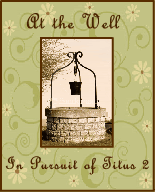The Top Ten Foods to Buy Organic
1. Meats: Theser are high on the food cahin, and thus can concentrate chemicals from the animal's diets in their fatty tissues.
2. Dairy products: Also high on the food chain and ric in fats, which is where harmful chemicals become stored.
3. Fish: While not strictly organic, it is critical to buy wild fish and avoid all farmed fish, which can contain high levels of contaminants.
4. Berries: Strawberries, raspberries and other berries including grapes have a thin, absorbent skin that you eat. These fruits are heavily sprayed and tend to absorb more of the chemicals that they come in contact with during produciton.
5. Salad crops: Lettuce, spinach and celery are highly sprayed and have no outer shell to protect the part you eat--the leaf.
6. Mushrooms: Mushrooms are highly absorbent, and conventional growing uses powerful fungicides between crops to keep stray species from invading the intended crop.
7. Root crops: Conventional potatoes, yams, carrots, onions and other root crops can be sprayed with fungicides as well as pesticides, and the parts you eat grow in direct contact with the chimicals.
8. Bananas: Banana plantations use up to 20 times more pesticides per acre than crops grown in industrialized countries. Conventional bananas are often grown iwht a blue plastic bag of pesticides placed over the soft, absorbant skin of the fruit. Enough said?
9. Waxed Fruit: That shiny apple has a wax coating that locks in the pesticides and makes them very difficult to wash off.
10. Coffee and Tea: Technically not "foods," but hot-water brewing can concentrate the residual pesticides used in the growing process while it is extracting the "good stuff." Remember to use an unbleached filter and to avoid the Styrofoam cup like the plague!
It is a very handy little book for a basic intro into sustainability. If you are looking for some basic, non-overwhelming guidelines, it is worth taking a look at.
2. Dairy products: Also high on the food chain and ric in fats, which is where harmful chemicals become stored.
3. Fish: While not strictly organic, it is critical to buy wild fish and avoid all farmed fish, which can contain high levels of contaminants.
4. Berries: Strawberries, raspberries and other berries including grapes have a thin, absorbent skin that you eat. These fruits are heavily sprayed and tend to absorb more of the chemicals that they come in contact with during produciton.
5. Salad crops: Lettuce, spinach and celery are highly sprayed and have no outer shell to protect the part you eat--the leaf.
6. Mushrooms: Mushrooms are highly absorbent, and conventional growing uses powerful fungicides between crops to keep stray species from invading the intended crop.
7. Root crops: Conventional potatoes, yams, carrots, onions and other root crops can be sprayed with fungicides as well as pesticides, and the parts you eat grow in direct contact with the chimicals.
8. Bananas: Banana plantations use up to 20 times more pesticides per acre than crops grown in industrialized countries. Conventional bananas are often grown iwht a blue plastic bag of pesticides placed over the soft, absorbant skin of the fruit. Enough said?
9. Waxed Fruit: That shiny apple has a wax coating that locks in the pesticides and makes them very difficult to wash off.
10. Coffee and Tea: Technically not "foods," but hot-water brewing can concentrate the residual pesticides used in the growing process while it is extracting the "good stuff." Remember to use an unbleached filter and to avoid the Styrofoam cup like the plague!
It is a very handy little book for a basic intro into sustainability. If you are looking for some basic, non-overwhelming guidelines, it is worth taking a look at.







No comments:
Post a Comment